'I lived in hospital for 50 years but wasn’t ill'
'I lived in hospital for 50 years but wasn’t ill'
- Published
Charles Esler spent more than 50 years living behind locked doors in hospital despite not being acutely unwell.
Charles, who has a mild learning disability and epilepsy, was first taken into hospital when he was 10.
He told BBC Scotland News he had spent too many years in hospitals and he didn't like being locked in with no freedom.
His sister Margo said she had fought for Charles to be moved to somewhere he could be independent and last year, aged 62, he finally got the keys to his own flat for the first time.
"His family fought for years to find him a suitable place," said David Fleming from support charity, the Richmond Fellowship Scotland.
"Unfortunately some people get stuck in the system.”
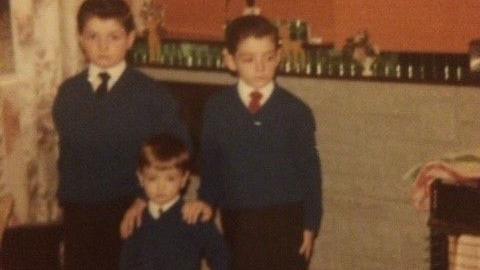
Charles (on the right) was first taken into hospital when he was 10
A BBC Scotland investigation has found that hundreds of people with learning disabilities are still trapped in hospitals or living hundreds of miles from family.
This is despite decades of government policy making clear that everyone should be moved out of long-stay institutions and into their own homes.
Two-and-a-half years ago the Scottish government promised to move the “majority” of people into their own homes by March 2024.
However, new figures obtained by the BBC show the numbers in hospital have risen.
A Freedom of Information request found the numbers of people with learning disabilities in hospital have increased from 173 to 191 since last summer.
The overall numbers on the new national register – which includes people far from home or at risk of placements breaking down - have increased 12% from 1,243 to 1,398.
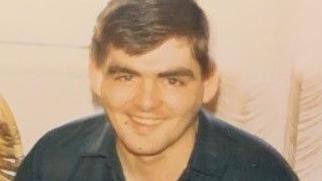
Charles says he spent too many birthdays with no freedom in hospital
Charles’s carers said his case proved that everyone could be supported to live in the community.
Mr Fleming said: "He was amazing during his transition and he is thriving and so independent now."
Charles, who grew up in Glasgow, said: “I can go out now and go places and go to the wee pub up the road and get a pub lunch.
"I like fish and chips. It feels good. I never had any freedom before.”
He said he loved sitting in his own lounge watching James Bond films. He is learning to cook and garden and clean for himself.
His sister Margo McKeever said her brother's behaviour had often been challenging when he was a child and their parents were advised to put him into hospital.
She said doctors struggled to get Charles’ epilepsy medication right.
Ms McKeever fought for years to get her brother his own home.
“Don’t go thinking this is a fairytale story," she said.
"This was not an overnight process.
"So many people have been involved and it has taken around 14 years to find the right place.
"Everyone should have someone who can make sure they are not just a number.”
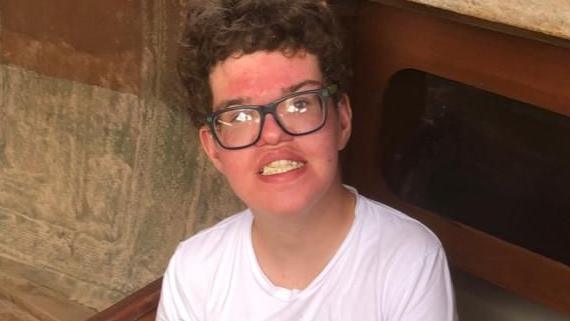
Fraser Malcolm has been living in hospital for more than three years
Fraser Malcolm has been living in hospital for more than three years despite agreement that he is ready to leave.
The 20-year-old, from West Kilbride in North Ayrshire, has limited speech and complex needs but before he went into hospital his parents say he lived a full life.
He attended a special school, regularly went sailing and on holiday with his family and was helping his dad renovate a sailing boat.
His parents said their greatest mistake was “asking for help”.
Fraser’s mother Karen said her son had gone downhill since being in hospital and that the fear of restraint in the hospital “is just chipping away at the person he once was”.
She said she was “absolutely disgusted” that the numbers of people with learning disabilities had increased since ministers promised to get people home.
“It's taken a sledgehammer through our family and many other families I’m now in contact with,” she said. “It's chipped away at every one of us."
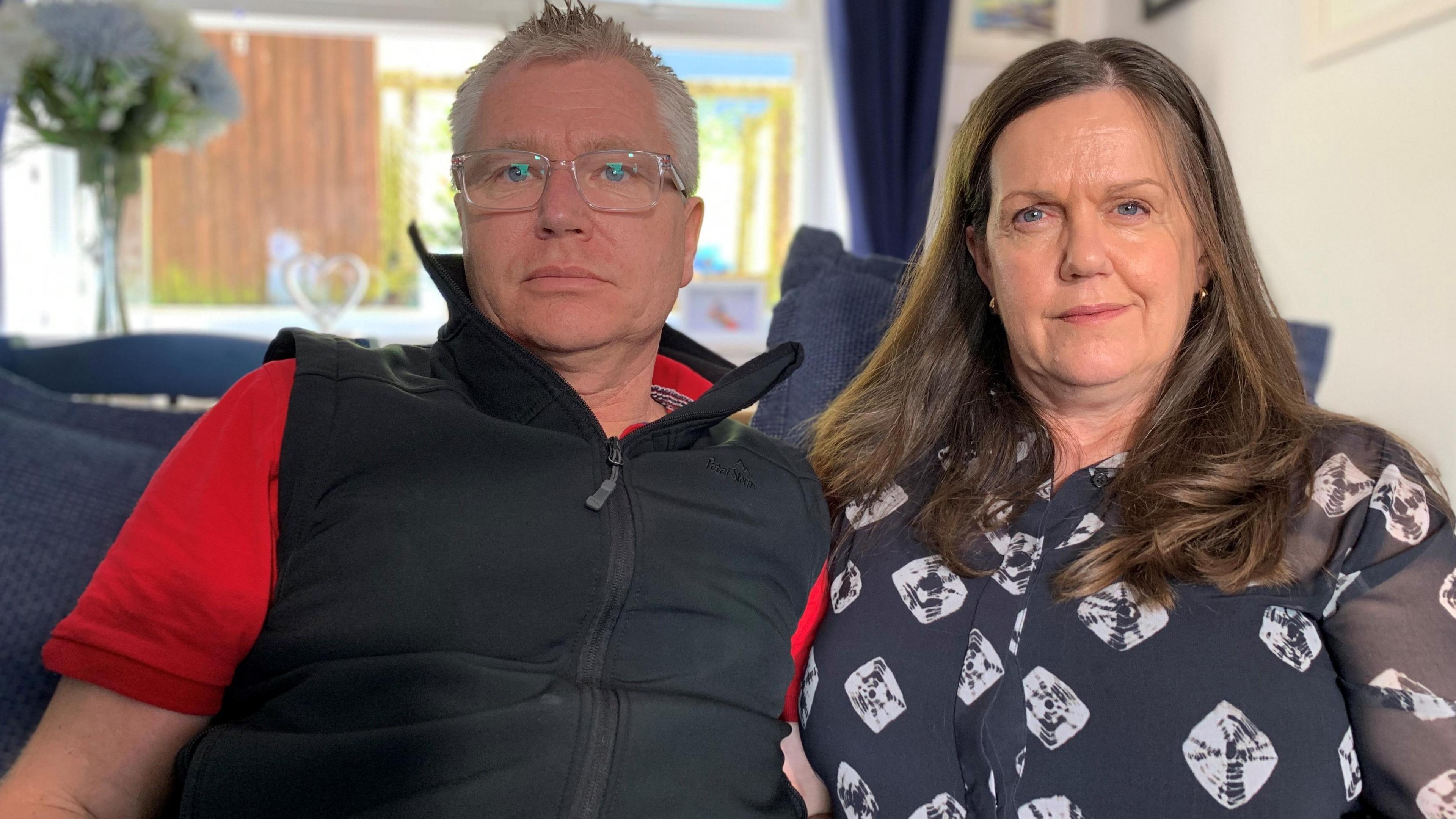
Andrew and Karen Malcolm
Fraser’s family have set up a purpose-built room for him and want him to come home but say he has deteriorated so much in hospital that he has become afraid to leave his room.
In common with many families, they have struggled to find a suitable care package and agree a transition from hospital.
A spokesperson for North Ayrshire Health and Social Care Partnership said it would continue to work with Fraser and his family towards a discharge from hospital.
“There are ongoing challenges locally and across Scotland in the capacity, availability and variety of community-based care options for individuals with complex support needs,” they said.
A spokeswoman for Glasgow’s Health and Social Care Partnership said it was a momentous step for Charles to move into a home of his own.
“We continue to work hard to support other individuals, like Charles, with complex support needs, to move on from hospital into the right community-based accommodation," she said.
Separate Freedom of Information requests made by BBC Scotland to all of Scotland’s health boards found that more than 120 people with learning disabilities had been in hospital for more than a year.
This includes 28 who have been in hospital for more than 10 years and four who have spend more than 20 years in hospital.
Learning disabilities care to be moved nearer home
- Published21 February 2022
Patients locked in secure hospitals for decades
- Published15 August 2022
Two years ago, BBC Disclosure found people with learning disabilities were getting trapped in hospital.
Of the young people featured, including Fraser Malcolm, all of them are still stuck living behind locked doors in hospitals.
Kyle Gibbon is now 37 years old and has been living in Carstairs, the State Hospital, for 15 years.
Jamie is 26 and is still living in Woodlands View hospital in Ayrshire and Arran. He has been there since he was 19 and is recorded as a delayed discharge.
Louis Sainsbury is still thriving in his home in Perthshire after years in hospital.
Thousands of people with learning disabilities were living in long stay-hospitals prior to the 1990s when it was agreed it was inhumane.
The Scottish government published The Same As You? report in 2000, which established the right for everyone with a learning disability to live in their own homes and communities.
Experts say it is absolutely possible for everyone to live in their own home with the right support.
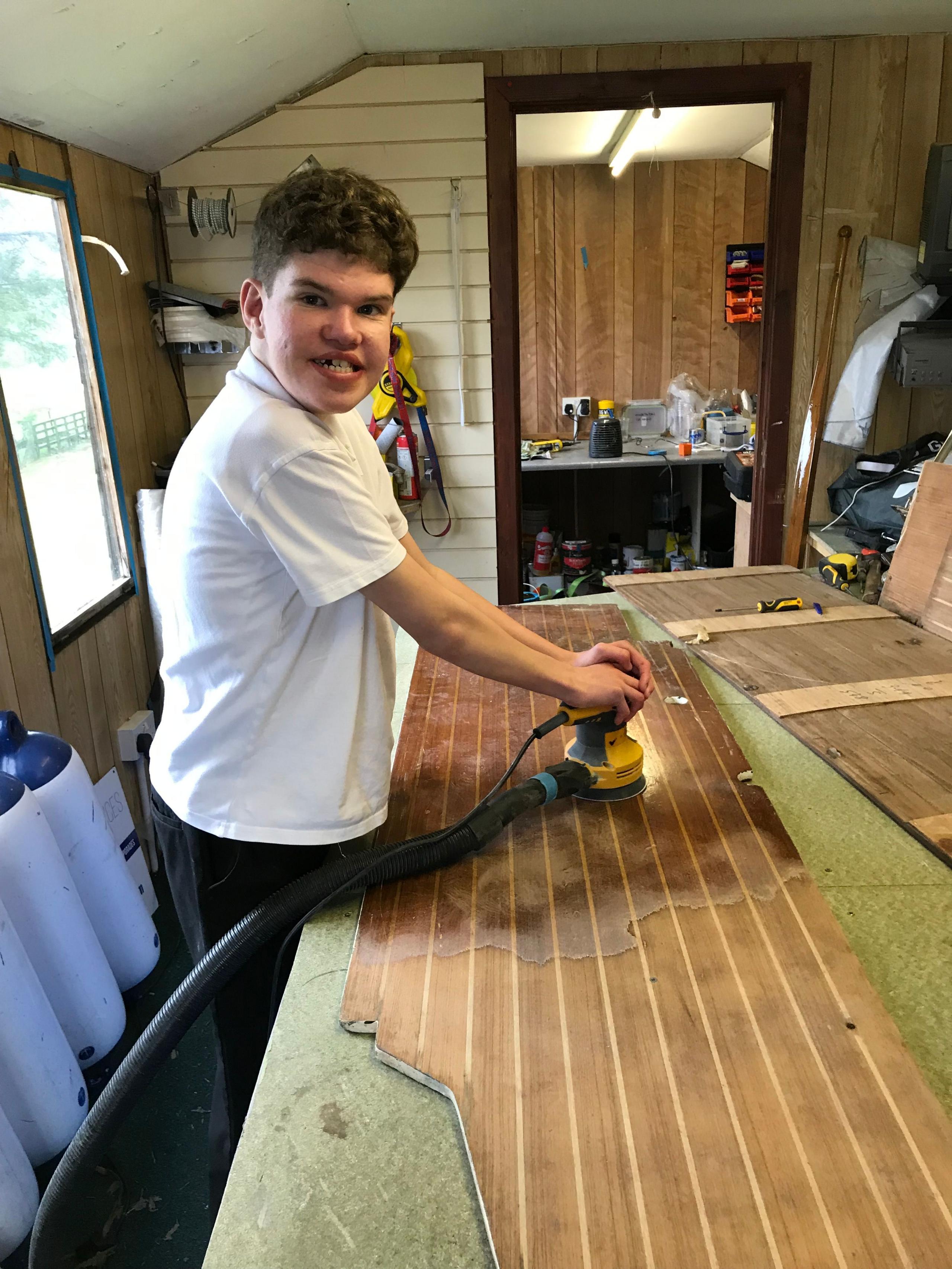
Fraser used to help his dad with his boat repairs
Dr Sam Smith, director of C-Change Scotland an organisation which supports disabled people to live at home, said: “We closed long-stay hospitals 20-odd years ago with the belief that we knew that people could live in the community."
The Scottish government said it had worked with local authorities to create the national register of people with learning disabilities in hospital and hundreds of miles from home and provided £20m in funding to help move people into their own homes.
Social Care Minister Maree Todd told BBC Scotland News: “We are absolutely determined to make progress on this issue.
"But as this information shows it is a difficult one to solve.
"The statutory responsibility lies with local authorities and I am working very closely with local authorities to try to improve the situation.”